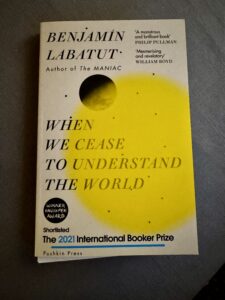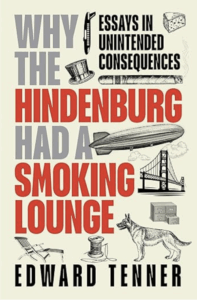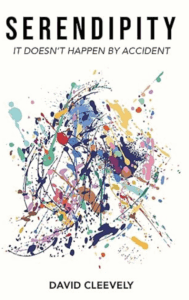The man himself

Wonderful portrait of the artist by Hubertus Hierl taken in August 1966. Here’s his explanation of how it came about.
I was travelling around the Côte d’Azur for various newspapers and magazines, capturing the activities of young people with my camera. I was near Cannes. Posters announced a bullfight in nearby Fréjus on Sunday, August 7. I decided to go. What followed was a series of fortunate events: when the ticket seller saw my two Leica M3 cameras, he immediately handed me a press pass. As I walk around the oval arena, I suddenly spotted Pablo Picasso with his young wife Jacqueline among the spectators. I signalled to Picasso that I would like to take a few photos. Picasso was in a great mood, and gave me a friendly nod, letting me know that he didn’t mind. It didn’t stop with just a few photos! The whole scenario was just too much. The result was over 100 photos – the last coverage of Picasso out in public. On the occasion of Picasso’s 85th birthday (25.10.1966) the portrait went around the world. Of the many messages I received, the most moving one came from the elderly art historian Carl Georg Heise. ‘You have captured something remarkable: the age at which such a great life becomes its own legend – with strength, secret knowledge and the sadness of parting.’”
Quote of the Day
”Behind every great fortune lies a great crime.”
- Honoré de Balzac
Musical alternative to the morning’s radio news
Bruce Springsteen | Thunder Road
To get the full experience, you really have to listen to it on a good stereo system, with the volume turned up. He has a mesmerising connection to his (vast) audiences.
Long Read of the Day
Everybody gets popped: Lance Armstrong’s Regime
We spent many evenings recently watching the various stages of the Tour de France and wondering why human beings put themselves through such torture. And then I read this LRB piece by David Runciman and began to understand.
Taking EPO was not without risks: the medical consequences were often unpredictable. It makes your blood ‘healthier’ in the sense that it makes it thicker, which can cause your arteries to clog up entirely if you are not careful. It is not clear how many cyclists died of heart attacks in the experimental phase of the EPO era, during the late 1980s and early 1990s, when the athletes were less adept at monitoring their reaction to the drug. They didn’t die on their bikes; they died in their sleep when the blood stopped moving (‘stories from that era tell of riders who set alarm clocks for the middle of the night so they could wake up and do some pulse-increasing callisthenics’). Why would super-fit athletes take such insane risks with their health? Part of the answer, as Hamilton explains, is that professional cycling is an inherently unhealthy sport.
It is, to start with, extremely dangerous: cyclists crash all the time, breaking bones and risking permanent injury. Then there is the need to eat the bare minimum consistent with surviving the demands of a long race. Along with having thick blood, the other crucial requirement for a Tour de France rider is to be extremely thin. Hamilton says that during his doping years he also had a borderline eating disorder, which meant he spent far more time thinking about the food he was keeping out of his body than he did about the drugs he was putting in. The truth is that long-distance road racers only feel healthy when they are on their bikes: the rest of the time they feel horribly out of shape. They are achy, wheezy, bent up; they walk like old men; they sit when other people are standing, and they lie down when other people are sitting. When Hamilton was at the height of his cycling powers, he infuriated his wife by being unable even to take a short walk with her to the shops: he never felt fit enough.
The other thing cyclists need is an extraordinary tolerance for pain…
You bet. On one of the closing stages of this year’s Tour, there was an horrendous high-speed crash. One of the cyclists slid agonisingly along the wet road and I think came into contact with a kerb. Turned out he had broken his collarbone. And then a few minutes later, what do I see but him on his bike, steering with his left hand and pedalling furiously to catch up with the peloton. Sacre bleu!
So many books, so little time

This was a gift from a dear friend, a writer who has great taste in books. I’d never heard of it and so opened it not knowing what to expect. What I find is extraordinary — a set of stories about the question of whether some of the twentieth century’s greatest minds drove themselves mad in their search for a key to the secrets of the universe. Reviewing it, the critic John Banville described it as “a dystopian nonfiction novel set not in the future but in the present”. In that sense it reminds me of Francis Spufford’s wonderful Red Plenty which likewise blends fiction and fact. I see that Ruth Franklin had a long essay about Labatut in the New Yorker in 2021, but I’ll leave that until I’ve finished the book
Paying geeks $200m but slashing jobs – this is what an AI bubble looks like
Sunday’s Observer column:
The AI bubble continues to inflate at a stupendous rate. Trawling through company filings and public statements from Meta, Microsoft, Google, Amazon, OpenAI, xAI, CoreWeave and Oracle reveals that, collectively, these outfits propose to spend between $477bn and $498bn on building what they call “AI infrastructure”: datacentres, high-end graphics processing units, land purchases, construction, etc. As the US politician Everett Dirksen supposedly said in another context: “A billion here, a billion there, pretty soon, you’re talking real money.”
If you thought that it’s hard to imagine a business model that could produce decent rates of return within a reasonable timeframe from investments on this scale, you’d be spot on: there isn’t one. This isn’t about mundane stuff such as return on investment, but about something much grander: world domination, or words to that effect.
What we’re seeing is a seismic shift in the tech industry that’s been triggered by AI. The big companies have realised that AI has become the strategic core asset…
My commonplace booklet
From Nicholas Carr…
A few months ago, as part of my annual physical exam, I had blood drawn for a routine panel of tests. Late the next day, my phone vibrated to let me know the results were available through my doctor’s “patient portal” app. I signed in (entering a six-digit code to authenticate myself), clicked on the Results tab, and was greeted by a long list of numbers. There must have been two dozen of them, each a measure of some important metabolic function, each occupying a poi nt within a range of points. Blood, that most vital and visceral of substances, had been turned into an array of data on a computer screen. Blood had been rendered bloodless. Maybe I was in a morbid mood—medical tests will do that to you—but as I scrolled through the numbers, I couldn’t help feeling I was looking at a metaphor for something larger, something central to the human condition today. What is datafication but a process for transforming the living into the dead?
This Blog is also available as an email three days a week. If you think that might suit you better, why not subscribe? One email on Mondays, Wednesdays and Fridays delivered to your inbox at 5am UK time. It’s free, and you can always unsubscribe if you conclude your inbox is full enough already!
















